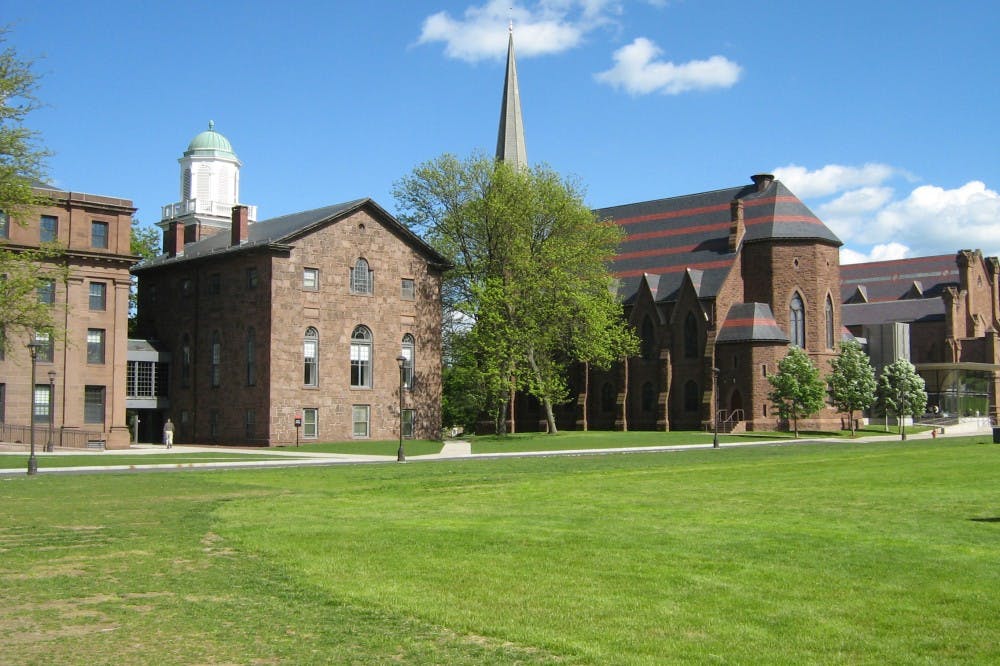
Courtesy of Wikimedia Commons
The freedom from feeling upset, it seems, now trumps the freedom of speech and the freedom of the press on many American college campuses.
The most egregious, recent example might be the furor engendered by an op-ed titled, “Why Black Lives Matter Isn’t What You Think,” published in Wesleyan University’s student newspaper. The conservative opinion piece, which argued that the Black Lives Matter movement did more harm than good, led to a movement to defund the 147-year-old Wesleyan Argus. In addition, a boycott signed by 167 people included demands that amounted to an extreme censorship of the newspaper, such as disposing of copies of the Argus and dictating that a part of the front page be dedicated to marginalized voices. In response, the Argus immediately published an almost 1,000-word apology in which the editors-in-chief wrote that they “sincerely apologize for the distress the piece caused the student body.”
This apology was both unfortunate and unnecessary — the Argus did nothing wrong. Rather, it was those members of the Wesleyan community who participated in the censorship of the free press and free speech that apparently do not understand how newspapers or democracies work. A newspaper’s publication of an op-ed does not mean that the newspaper agrees with the opinions expressed in the op-ed. And the protesters’ immediate reaction to try to shut down the Argus just because they disagreed with what they read is a childish way to avoid reason-based discussion. It is through open expression and dialogue that people can make educated decisions. The silencing of unpopular opinions because they cause “distress” hinders real progress and will only prevent meaningful discussions from occurring.
Even President Barack Obama expressed his doubts about extreme political correctness, saying both liberal and conservative students should not be “coddled and protected from different points of view.” At Penn, that coddling has manifested itself in several disturbing ways.
Most recently, student leaders announced the creation of a Greek Community Judicial Board, whose sole purpose was to judge and punish student groups for instances of cultural insensitivity. Thankfully, the administration realized that policing speech was a bad idea, and it’s now clear that the University doesn’t support a student group with the power to sanction others. While we think it’s extremely important for students to learn about the adversity faced by marginalized groups, no group should have the power to punish another for keeping to themselves or for expressing their feelings in speech — as troubling or disrespectful as those feelings might be.
Another example is the occasional censorship of speakers by Penn students, which underlines the importance of open expression monitors. Although the concept of open expression monitors might seem Orwellian, the culture of literally shouting down unpopular opinions ironically makes the presence of the monitors necessary to protect free speech. At Lawrence Summers’ lecture last year, for example, student protesters interrupted his speech and held up signs asking the audience to laugh at Summers. This kind of behavior has little effect besides serving as a convenient outlet for the anger of the protesters and does not truly engage with the speakers.
We recognize that the University has gone to extremes to accommodate freedom of speech and expression. But liberal students should understand that trying to end systemic histories of oppression is more complicated than simply yelling at people who disagree. And institutionalizing a culture of extreme political correctness is merely installing a new form of marginalization.
The Daily Pennsylvanian is an independent, student-run newspaper. Please consider making a donation to support the coverage that shapes the University. Your generosity ensures a future of strong journalism at Penn.
DonatePlease note All comments are eligible for publication in The Daily Pennsylvanian.




